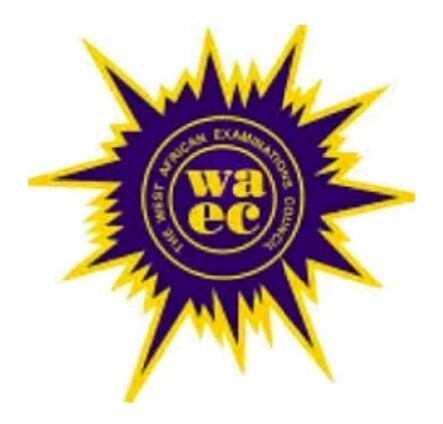Preparing for the WAEC Fisheries examination requires a solid understanding of the syllabus.
List of Key Topics in WAEC Syllabus for Fisheries 2024/2025
In this blog post, we will delve into the aims and objectives, as well as the format of the exam.
We will explore the various topics covered in the syllabus, highlighting key concepts and recommended textbooks.
Whether you’re a student or a teacher, this guide will serve as a valuable resource to ensure your exam preparation is focused and effective.
Aims and Objectives
The WAEC Fisheries syllabus aims to assess candidates on several important aspects, including:
- Understanding the significance of fisheries in the socio-economic development of West Africa.
- Developing skills in fish farming.
- Cultivating basic entrepreneurial skills in fisheries-related vocations.
- Recognizing the effects of water pollution on fishery resources.
- Learning fish preservation and processing techniques.
Requirements
Schools offering Fisheries must have some essential facilities, including a small glass/plastic tank or aquarium and a fish pond or concrete tank.
It is recommended to supplement classroom learning with visits to established fish farms, fisheries research institutions and fishing companies.
Practical notebooks should be maintained to record activities, observations, and collected specimens.
Creating an album of fishery organisms, fishing gear and craft, and different fish rearing facilities and equipment is also encouraged for teaching purposes.
Scheme of Examination
The Fisheries examination consists of three papers: Papers 1, 2, and 3.
PAPER 1: This paper comprises forty multiple-choice objective questions to be completed within 40 minutes for a total of 40 marks.
PAPER 2: Candidates will face six essay questions, out of which they must answer four within 2 hours, accounting for 80 marks.
PAPER 3: School candidates will undertake a practical paper, while private candidates will have an alternative to practical work paper. Both versions consist of four questions to be answered within 1½ hours, carrying 60 marks.
WAEC Fisheries Syllabus
The syllabus covers a wide range of topics, providing a comprehensive understanding of fisheries. Let’s explore the key areas included in the syllabus:
-
Basic Concepts in Fisheries
- Introduction to Fisheries: Definition, sub-divisions, and importance.
-
Processes of Fish Production
- Capture Fisheries: Methods, materials, and equipment used.
- Culture Fisheries: Identifying culturable fish species, culture facilities, and common culturable organisms.
-
Types of Fish Culture Facilities and Culture Systems
- Fish Ponds: Types, components, and management.
- Aquaculture Systems: Types and management practices.
- Water Quality Control and Monitoring: Parameters, monitoring methods, and pollution prevention.
-
Fish Feeds and Feeding
- Fish Feed Materials: Identification and nutritive value.
- Feeding Regime: Periods, methods, and ideal feeding practices.
-
Fish Pond Preparation and Management
- Pond Construction and Preparation: Tools, techniques, and stocking preparation.
- Pond Management Practices: Understanding pond management and its importance.
-
Fish Harvesting and Post-Harvesting Processes
- Fish Harvesting: Materials, gear, crafts, and methods.
- Post-harvest Handling: Processing, preservation, packaging, and marketing.
-
Fish Seed Production
- Brood Stock Selection and Handling: Identifying good breeders and handling techniques.
- Artificial Breeding: Steps, equipment, and materials used.
- Managing and Nursing Fish Seed: Best practices for nurturing fish seed.
-
Practical Fisheries
- Fish Culture: Environmental conditions, tools, culturable fish species, and feed materials.
- Fishing Gear and Craft: Types of gear and crafts used in fishing.
- Fish Processing and Preservation: Techniques, equipment, packaging materials, and marketing channels.
List of Facilities and Equipment
The syllabus includes a comprehensive list of facilities and equipment required for effective teaching and learning. This encompasses various instruments, tools, and resources essential for practical demonstrations and understanding fisheries concepts.
FAQs
What topics are covered in the WAEC Fisheries syllabus for 2024/2025?
The WAEC Fisheries syllabus for 2024/2025 includes various topics such as the biology of fish, fish farming techniques, aquaculture systems, fish diseases and health management, water quality management, and the economic importance of fisheries. Students will also learn about sustainable fishing practices and the role of fisheries in food security.
How is the WAEC Fisheries examination structured?
The WAEC Fisheries examination typically consists of both theory and practical components. The theory paper assesses students’ understanding of the concepts outlined in the syllabus, while the practical paper evaluates their ability to apply these concepts in real-world scenarios. Students should prepare for multiple-choice questions, short answer questions, and practical tasks related to fish farming and management.
Where can I access the WAEC Fisheries syllabus for 2024/2025?
The WAEC Fisheries syllabus for 2024/2025 can be accessed through the official WAEC website or obtained from your school’s examination office. Schools may also provide copies of the syllabus during classes or through online educational resources. It is recommended to refer to the syllabus to ensure comprehensive preparation for the examination.
Conclusion
Mastering the WAEC Fisheries syllabus is vital for exam success.
This blog post has provided a detailed overview of the syllabus, objectives, and examination format.
By following the syllabus, understanding the key concepts, and referring to the recommended textbooks, students can confidently prepare for the Fisheries exam.
Remember, the syllabus serves as a roadmap to guide your study, so make sure to utilize it effectively. Best of luck in your preparations for the WAEC Fisheries examination!






